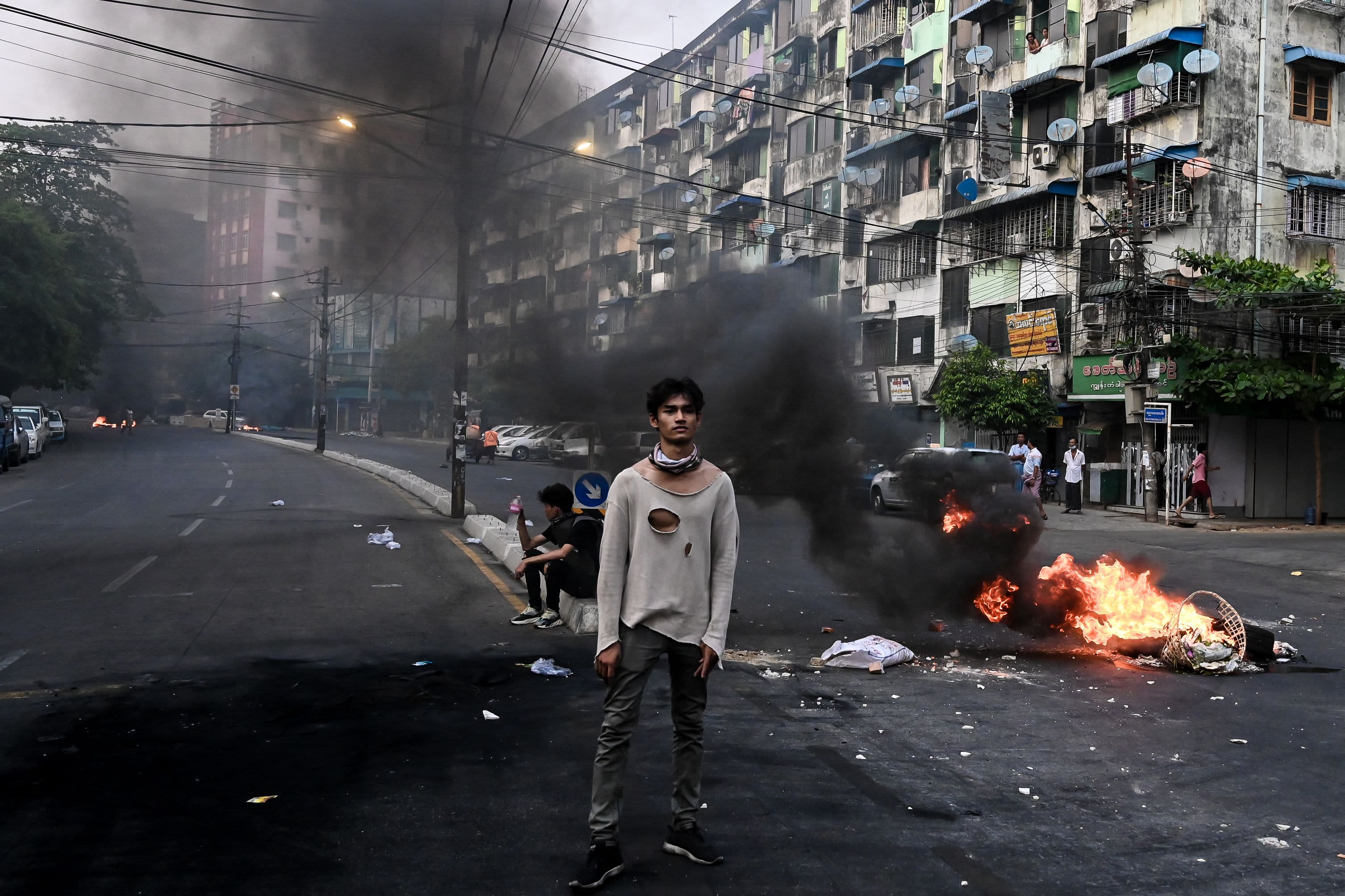Myanmar has become a global flashpoint as violence escalates. Here's what to know
Local reports from Myanmar, say protestors are getting slain in the major cities of Yangon and Mandalay, currently under martial law. May Wong, a journalist covering the crisis, posted a graphic video of the carnage.

Myanmar has descended into chaos as protestors show no signs of backing down against the Feb. 1 military coup that ousted the democratically elected government led by Aung San Suu Kyi, the National League for Democracy party head. The protestors have been met with brutal force.
A U.N. special envoy warned of an imminent “bloodbath” if the military doesn’t end its brutal crackdown, which has taken the lives of hundreds so far.
In the latest move, the military has shutdown broadband internet services, according to Reuters.
The military is killing peaceful protestors
Local reports from Myanmar, say protestors are getting slain in the major cities of Yangon and Mandalay, currently under martial law. May Wong, a journalist covering the crisis, posted a graphic video of the carnage.
Watch this short video:
Violence across the country has spread beyond the main cities. A 13-year-old boy was killed near the Thai border in southwest Myanmar.
On Sunday, more than 100 people died in the bloodiest day since the coup began. According to the Assistance Association for Political Prisoners, the estimated death toll to date is 536, though the actual number is likely higher, AAPP said.
Violence against ethnic minorities has risen as well. The Karen National Union, a political organization in southeast Myanmar with an armed wing, claimed its Karen people were attacked by Myanmar army fighter jets in late-night airstrikes, according to Reuters. The attack breaches a 2015 cease-fire agreement.
Several ethnic minority groups are now teaming up to fight back against the country’s junta. Three forces in the country, including the Arakan Army have vowed to form an alliance and conduct a “spring revolution” if the violence doesn’t stop, Reuters reported.
“We have no other options left but to confront these serious threats posed by the illegitimate military junta’s army in order to defend our territory, our Karen peoples and their self-determination rights,” read a KNU statement from March 30.
The crisis started with a coup to overturn an election
In November elections, Suu Kyi’s NLD won enough seats to form a government, but the Myanmar military, citing irregularities, contested the results.
On Feb. 1, the military ousted the seated government, detaining Suu Kyi and other NLD party members. Since then, Suu Kyi has been charged with illegally importing walkie-talkies and a natural disaster violation for breaching Covid-19 protocols.
Most recently, she was hit with an official secrets act charge, the most serious to date. If convicted, the prison sentence could be as much as 14 years. According to a Myanmar free expression website, the law “was created by the British colonial government in 1923 to criminalize the sharing of almost any kind of information held by the government.”




































